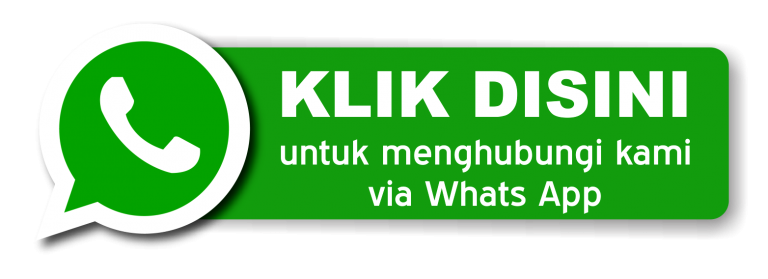Pokdarwis' Role in Social Entrepreneurship for Tourism Resilience: An Educational Perspective
DOI:
https://doi.org/10.62951/icgtsave.v1i2.34Keywords:
Educational, Perspective, Resilience, Social Entrepreneurship, TourismAbstract
Tourism stands as a pivotal sector influencing social and cultural development, extending beyond its economic contributions to impact various facets of society. Efforts by governments to revitalize this sector include initiatives such as forming Community-Based Tourism Groups (Pokdarwis), entrusted with managing and promoting local tourism potential. Consequently, Pokdarwis are expected to assume a significant role in fostering social entrepreneurship. This research aims to delve into Pokdarwis' role in advancing social entrepreneurship to bolster tourism resilience within a region. By exploring how Pokdarwis act as catalysts in fostering a conducive ecosystem for social entrepreneurship, this study seeks to uncover effective strategies for enhancing tourism resilience and empowering local communities. Integrating Pokdarwis into the educational perspective strengthens their role in social entrepreneurship in the tourism sector. Education plays a crucial role in empowering communities and promoting sustainable development. Through collaboration with schools, universities, and educational institutions, Pokdarwis can integrate tourism-related topics into the curriculum, provide educational programs and workshops, and encourage research and knowledge sharing. These steps can enhance awareness, skills, and sustainable practices among local communities and tourists. Thus, this collaboration supports the holistic development of individuals and tourism destinations
References
Ahman., H. (2022). PARIWISATA DAN KETAHANAN NASIONAL INDONESIA. UNJ PRESS.
Azmi., et al. (2023). ANALISIS POTENSI WISATA KEBUDAYAAN BERBASIS KEWIRAUSAHAAN SOSIAL SENI BADENG KASEPUHAN MANDALAWANGI. 1(2), 78–88.
Cholissodin, I., & Riyandani, E. (2018). ANALISIS BIG DATA.
Deriota. (2022). Apa yang Ditawarkan Internet of Things (IoT) pada Industri Perjalanan? Yuk Simak Artikel Berikut ini. Deriota.Com.
Dwyer, L., Edwards, D., Mistilis, N., & Roman, C. (2002). Innovations for Sustainable Tourism Destination and Enterprise Management for a Tourism Future. BEST EN, Think Tank VII, 48–61.
Elsa, E. (2017). Peran Pariwisata Dalam Meningkatkan Pertumbuhan Ekonomi Masyarakat. Jurnal Spasial, 3(1). https://doi.org/10.22202/js.v3i1.1593
Gede, I., Fujihasa, M., Ayu, I., Widawati, P., Made, N., & Mahadewi, E. (2022). Pembangunan Pariwisata di Desa Wisata Penglipuran Melalui Peran Partisipasi Masyarakat, Kewirausahaan Sosial Berkelanjutan dan Inovasi. Tahun, 10(2), 290–305. https://ejournal.undiksha.ac.id/index.php/EKU
Koens, K., Postma, A., & Papp, B. (2018). Is overtourism overused? Understanding the impact of tourism in a city context. Sustainability (Switzerland), 10(12). https://doi.org/10.3390/su10124384
Maharani, A., & Mahalika, F. (2020). Jurnal Lembaga Ketahanan Nasional Republik Indonesia New Normal Tourism Sebagai Pendukung Ketahanan Ekonomi Nasional Pada Masa Pandemi. Jurnal Lemhanas RI, 8(2), 42–55. https://jurnal.lemhannas.go.id/index.php/jkl/article/view/308
Margareth, H. (2017). PENDIDIKAN NASIONAL PARIWISATA TERHADAP PENGEMBANGAN DAN TANTANGAN DUNIA PARIWISATA. Экономика Региона, 32.
Monsterar.net. (2018). AR Tourism, Teknologi Ampuh Atasi Gaptek Lingkungan Wisata! Https://Monsterar.Net/.
Muhammad Isnan Nurfaqih., R. A. F. (2018). Social Entrepreneurship (Kewirausahaan Sosial) dalam Perspektif Ekonomi Islam. Social Entrepreneurship (Kewirausahaan Sosial) Dalam Perspektif Ekonomi Islam, 1(8), 1–15.
Pokja PANDI. (2023). Teknologi Blockchain Dan Potensi Pemanfaatannya Di Indonesia.
Purnawati, L. (2021). Pembentukan Kelompok Sadar Wisata ( Pokdarwis ) Dan Pengembangan Wisata Di Pantai Gemah. Publiciana, 14(02), 293–206. https://doi.org/10.36563/publiciana.v14i02.372
Pusfaster. (2024). Tentang TRL. Https://Pusfaster.Bsilhk.Menlhk.Go.Id.
Putrawan1, P. E., & Ardana2, dan D. M. J. (2019). PERAN KELOMPOK SADAR WISATA (POKDARWIS) DALAM PENGEMBANGAN PARIWISATA DI DESA MUNDUK KECAMATAN BANJAR KABUPATEN BULELENG. Locus Majalah Ilmiah FISIP, 11(2), 40–54.
Rahim, et al. (2019). Pedoman Pelaksanaan Pokdarwis.
RI, K. (2021). Destinasi Wisata Berbasis Sustainable Tourism di Indonesia. Https://Kemenparekraf.Go.Id/.
Riza, Z., Pohan, H., Nu, M., & Paisal, J. (2023). KESADARAN MANUSIA PADA POSISI ONTOLOGIS KECERDASAN BUATAN ( ARTIFICIAL INTELLIGENCE ) DALAM PERSPEKTIF ALQURAN ( Kajian Tafsir Ayat-Ayat Filosofis ). 3(1), 29–38.
Saragih, R., & Elisabeth, D. M. (2020). Kewirausahaan Sosial Dibalik Pandemi Covid-19 Penelusuran Profil Dan Strategi Bertahan. Jurnal Manajemen, 6(1), 47–56. https://www.ejournal.lmiimedan.net/index.php/jm/article/view/112
Soelistianto, F. A., Atmadja, M. D., & Khristiana, H. M. (2024). Identifikasi Penelitian yang Menggunakan Internet of Things (IoT) dalam Inovasi Teknologi Pariwisata. Jurnal Multidisiplin West Science, 3(02), 214–222. https://doi.org/10.58812/jmws.v3i02.1018
Solihin, D. (2020). Arah Kebijakan dan Strategi Pengembangan Parekraf. Https://Dadangsol6.Wixsite.Com/.
Tenrinippi, A. (2019). Kewirausahaan Sosial di Indonesia ( Apa , Mengapa , Kapan , Siapa Dan Bagaimana ). Meraja Journal, 2(3), 25–40.
Tiusanen, P. (2017). Virtual reality in destination marketing. Haaga-Helia University, 1–76.
Wibowo, Y. G., Zahar, W., Syarifuddin, H., & Ananda, R. (2019). Pengembangan Eco-Geotourism Geopark Merangin Jambi. IJEEM - Indonesian Journal of Environmental Education and Management, 4(1), 23–43. https://doi.org/10.21009/ijeem.041.03
Downloads
Published
Issue
Section
License
Copyright (c) 2024 Proceeding of The International Global Tourism Science and Vocational Education

This work is licensed under a Creative Commons Attribution-ShareAlike 4.0 International License.













